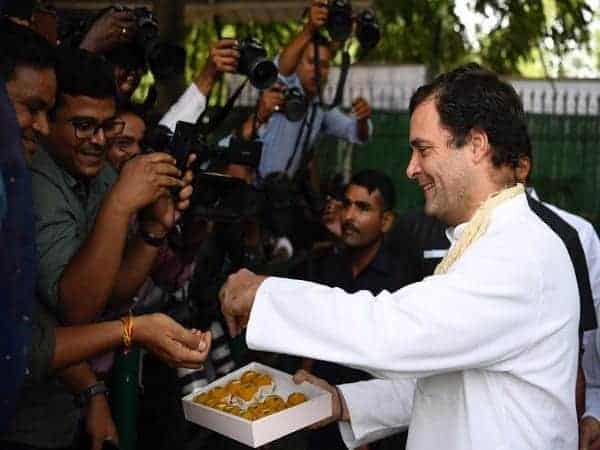What normally would have been a time for celebration for the Indian farmers has now posed an uncertainty in their survival itself. But, despite everything, the Indian Farmer toils away.
Baisakhi has traditionally been a time of celebration for Indian farmers- it marks the end of the Rabi Season and the day when their crops are ready for harvest. It is also the Sikh New Year and the Hindu Solar New Year, and thus has great religious significance to it as well.
However, this year, the Indian agricultural industry faces an unprecedented challenge. The Coronavirus pandemic has brought the country to a standstill and is possibly our worst economic emergency, ever. The lockdown imposed to curb the spread of the virus has caused a huge disruption in the agricultural supply chains, leading to problems for tge producers, transporters and consumers.
Firstly, to harvest a crop, the sector needs labour, who mostly hail from states like Uttar Pradesh, Jharkhand and Bihar. Due to the lockdown, most of them have resorted back to their villages, where a necessary sense of comfort and belongingness will be duly provided. Due to this, farmers are unable to harvest the crop mechanically or even hand pluck it, something that will lead to late harvests, which coupled with a lower yield and a shorter window to plant the next season’s crop aggravates the problems. Even in a situation where the harvesting is done, things like packaging the produce, transporting it the mandis and then to storage facilities will remain a challenge without the required labour.
The second major issue currently is the problem with distribution. Even after the Government of India has declared agriculture as an essential (which was done on 27th March, the country went into lockdown on the 24th of March) and allowed repair and supply shops toremain functional, distribution remains a major challenge. This too is heavily linked to the lack of availability of labour and the medium that can make the produce reach from the farms to the markets. Fears about a rush to the mandis the moment the harvest takes place cannot be ignored either, leading to panic selling and a further drop in prices, negatively impacting more what is already an economically unviable activity for most farmers.

Image Credits: Getty Images
The governments at both centre and state levels have tried to counter these problems. The Central Government has released an advance of Rs. 2000 to 7.92 Crore farmers on the PM-KISAN payments while also releasing funds for states to buy the crop at Minimum Support Price (MSP). Apart from that, the Market Intervention Scheme, which reimburses farmers of perishable crops in case of low prices, has also been implemented and governmental agencies have been asked to increase obtaining of produce from these farmers at MSP. The Haryana Government has guaranteed purchase of entire stocks of mustard and wheat and increased the number of markets so that there is one market to every three villages, while also ensuring the measures to contain the spread of Coronavirus in these markets. Telangana has announced a token system for the farmers to go to the mandi and a complete decentralisation in procurement, whereby the purchases will be made through respective Primary Agricultural Cooperative Societies in every village to cut down on the need for transport.
However, a lack of a coordinated policy at the national level is likely to hurt the farmers. The Centre needs to work with the State Government(s) and implement a strategy that enables the farmer to sell their wheat or other crops without having to arrange for transport. The Government can also try and get labourers to come and work if they’re willing to, perhaps taking a page out of Germany’s book, who flew in labourers from countries like Romania and Bulgaria to pick the agricultural produce. The railway network should be utilised effectively to ensure supplies reach where they’re needed and the Haryana and Telangana models should be implemented throughout the country so that the produce reaches the proper channels.
A lack of supply isn’t the problem- the winter crop this season has been bountiful. Matching the supply with the demand and getting it to where it is needed is an urgent problem that needs to be tackled on a war footing. The government needs to be proactive in its approach. While our flour mills cry out for wheat, the Food Corporation of India (FCI)is sitting on 27 million tonnes of wheat from the previous Rabi season, with a record 110 million tonnes estimated to be harvested this season.
While most of us sit in the comfort of our homes, the farmers toil daily to ensure our meals. As we clap for our doctors, this Baisakhi, we should also celebrate the farmers and express our gratitude by not indulging in hoarding of food items, wastage of any kind and use our privilege wisely to impact those who are struggling to meet their ends in such circumstances. This is the time for us to translate our solidarity into action.
Featured Image Credits: The Hindu Business Line
Khush Vardhan Dembla

